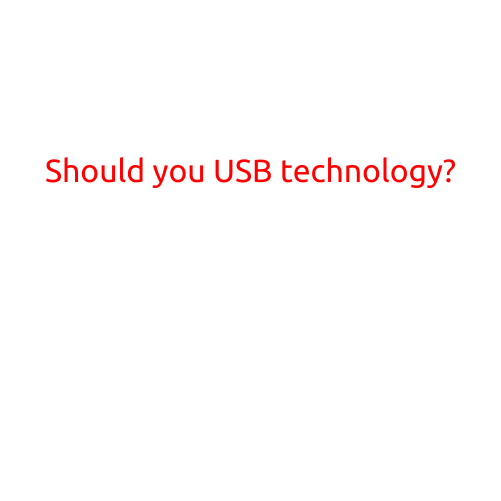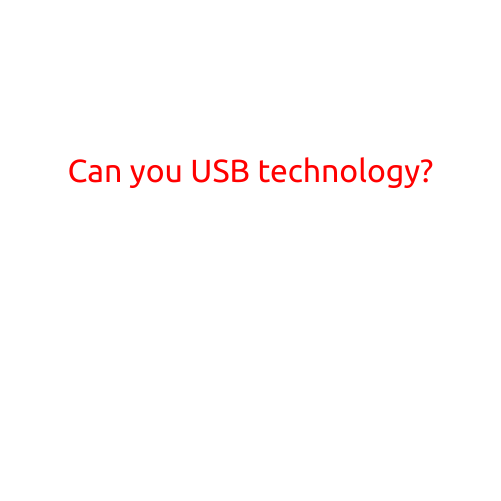
Should You Adopt USB Technology?
In today’s fast-paced and technology-driven world, it’s essential to stay up-to-date with the latest advancements in computing and connectivity. One area where this is particularly crucial is in the realm of USB technology. USB (Universal Serial Bus) has become a ubiquitous standard for connecting devices, from computers to phones, cameras, and more. But should you adopt USB technology in your home, office, or business?
The Benefits of USB Technology
There are several compelling reasons to consider adopting USB technology. Here are just a few:
- Convenience: USB technology allows for easy, plug-and-play connectivity between devices. No more fumbling with cables or searching for serial ports – just plug in and go!
- Versatility: USB is widely supported, making it easy to connect devices from different manufacturers and operating systems. Whether you’re using a Windows, Mac, or Linux device, you can still enjoy the convenience of USB connectivity.
- Speed: Modern USB standards, such as USB 3.0 and USB-C, offer much faster data transfer speeds than older technologies like parallel ports or serial connections. This means you can transfer large files quickly and efficiently.
- Power Delivery: Many USB devices, such as USB-C ports, can deliver power as well as data, making it possible to charge devices and transfer data simultaneously. This is especially useful for devices like laptops and tablets, which require constant power and connectivity.
The Drawbacks of USB Technology
While USB technology has many advantages, there are also some potential drawbacks to consider:
- Security Concerns: USB devices can potentially pose security risks, as they can be used to distribute malware or steal sensitive data. Make sure to only use trusted USB devices and keep your operating system and antivirus software up-to-date.
- Compatibility Issues: While USB technology is widely supported, there may be compatibility issues with certain devices or operating systems. Be sure to check compatibility before connecting your devices.
- Cost: While USB technology is generally affordable, high-speed USB-C devices and hubs can be more expensive than older technologies.
When to Use USB Technology
USB technology is an excellent choice for many applications, including:
- General Computing: USB is a great way to connect peripherals like keyboards, mice, and printers to your computer.
- Data Transfer: Use USB to transfer large files between devices, such as between computers or between a computer and an external hard drive.
- Power Management: USB-C ports with power delivery can be used to charge devices and transfer data simultaneously, making them a great choice for devices like laptops and tablets.
Conclusion
In conclusion, USB technology offers many benefits, including convenience, versatility, speed, and power delivery. While there are some potential drawbacks to consider, such as security concerns and compatibility issues, the advantages of USB technology make it a worthwhile investment for many users. Whether you’re looking to upgrade your computing setup, transfer large files, or charge your devices on-the-go, USB technology is an excellent choice.





